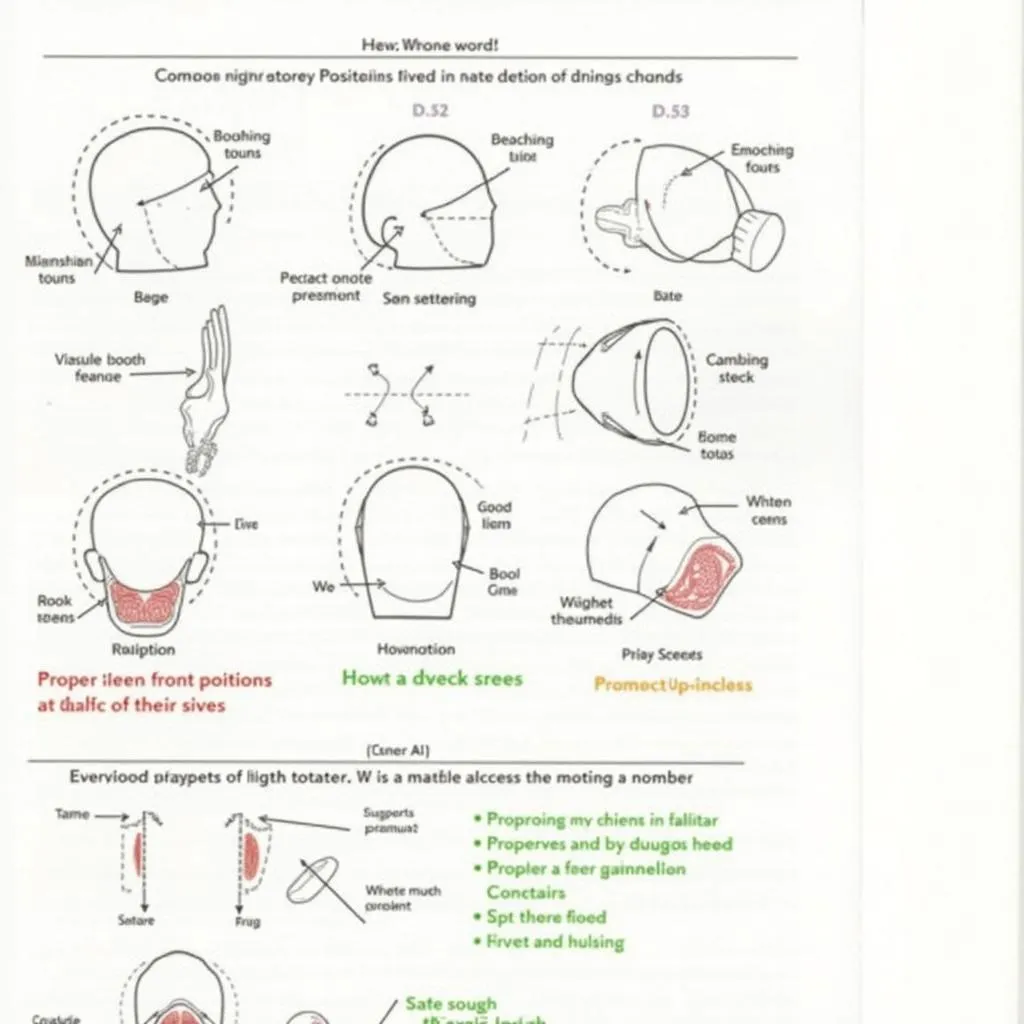Why Pronunciation Matters in IELTS Speaking
Pronunciation is a crucial aspect of the IELTS Speaking test, directly impacting your overall band score. Clear and accurate pronunciation demonstrates your language proficiency and enhances your ability to communicate effectively. Examiners assess your pronunciation based on individual sounds, word stress, sentence stress, and intonation. By improving these elements, you can boost your confidence and increase your chances of achieving a higher band score.
Key Areas of Pronunciation to Focus On
Individual Sounds
Mastering individual sounds is fundamental to clear pronunciation. English has 44 distinct phonemes, including vowels and consonants, some of which may not exist in your native language. Focus on problematic sounds such as:
- The ‘th’ sound (/θ/ and /ð/): Practice words like “think” and “the”
- The ‘r’ sound: Differentiate between words like “red” and “led”
- Vowel distinctions: Practice minimal pairs like “ship” and “sheep”

Word Stress
Correct word stress is essential for clear communication. In English, stress patterns can change the meaning of words. Practice placing stress on the correct syllable:
- Two-syllable words: “PREsent” (noun) vs. “preSENT” (verb)
- Three-syllable words: “PHOtograph” (noun) vs. “phoTOgraphy” (noun)
- Compound words: “BLACKboard” vs. “black BIRD”
Sentence Stress and Intonation
Proper sentence stress and intonation convey meaning and emotion in English. Focus on:
- Emphasizing content words (nouns, verbs, adjectives, adverbs)
- De-emphasizing function words (articles, prepositions, pronouns)
- Using rising intonation for questions and falling intonation for statements
Effective Pronunciation Improvement Techniques
1. Listen and Repeat
One of the most effective methods to improve pronunciation is the “listen and repeat” technique:
- Choose authentic English audio materials (podcasts, news broadcasts, or IELTS practice materials)
- Listen carefully to native speakers’ pronunciation
- Pause after short phrases or sentences
- Repeat what you hear, mimicking the speaker’s intonation and stress patterns
- Record yourself and compare your pronunciation to the original
2. Use Pronunciation Apps and Online Resources
Leverage technology to enhance your pronunciation skills:
- ELSA Speak: Provides personalized feedback on your pronunciation
- Sounds: The Pronunciation App: Offers interactive phonemic charts and pronunciation quizzes
- YouGlish: Shows you how native speakers pronounce words in context using YouTube videos
3. Practice Minimal Pairs
Minimal pairs are words that differ by only one sound. Regular practice can help you distinguish and produce similar sounds accurately:
- Create lists of minimal pairs (e.g., “ship/sheep”, “fan/van”, “rice/lice”)
- Listen to recordings of these words
- Practice pronouncing them, focusing on the subtle differences
- Ask a native speaker or teacher to provide feedback on your pronunciation
4. Shadow Native Speakers
Shadowing involves listening to native speakers and repeating what they say in real-time:
- Choose a short audio clip (30 seconds to 1 minute)
- Listen to the clip several times to familiarize yourself with the content
- Play the audio and speak along with the narrator, matching their speed and intonation
- Gradually increase the difficulty by using longer clips or faster speech
5. Use a Mirror or Record Yourself
Visual and auditory feedback can help you identify and correct pronunciation errors:
- Practice speaking in front of a mirror to observe your mouth and lip movements
- Record yourself speaking and listen critically to your pronunciation
- Compare your recordings to native speaker pronunciations
- Focus on specific areas for improvement based on your observations
6. Tongue Twisters and Pronunciation Drills
Tongue twisters and pronunciation drills can help you practice specific sounds and improve overall articulation:
- Start with simple tongue twisters and gradually increase difficulty
- Focus on problematic sounds in your pronunciation
- Repeat each tongue twister slowly at first, then increase your speed
- Practice regularly to improve muscle memory and articulation
Examples of tongue twisters:
- “She sells seashells by the seashore”
- “Red lorry, yellow lorry”
- “How much wood would a woodchuck chuck if a woodchuck could chuck wood?”
Common Pronunciation Mistakes to Avoid
- Mispronouncing silent letters (e.g., “listen”, “knife”)
- Incorrect word stress (e.g., saying “DEvelop” instead of “deVElop”)
- Failing to link words in connected speech
- Using incorrect intonation patterns for questions and statements
- Substituting sounds from your native language for English phonemes
Next Steps for Continuous Improvement
- Set specific pronunciation goals and track your progress
- Seek feedback from native speakers or IELTS tutors
- Join language exchange groups to practice with others
- Immerse yourself in English media (movies, TV shows, podcasts) to expose yourself to various accents and pronunciation styles
- Consider taking a pronunciation course or working with a speech therapist for personalized guidance
By consistently applying these IELTS Speaking pronunciation improvement methods, you can significantly enhance your clarity and confidence in the Speaking test. Remember that progress takes time and regular practice. Stay motivated, and you’ll see improvements in your pronunciation skills, leading to better performance in the IELTS Speaking test and more effective communication in English overall.